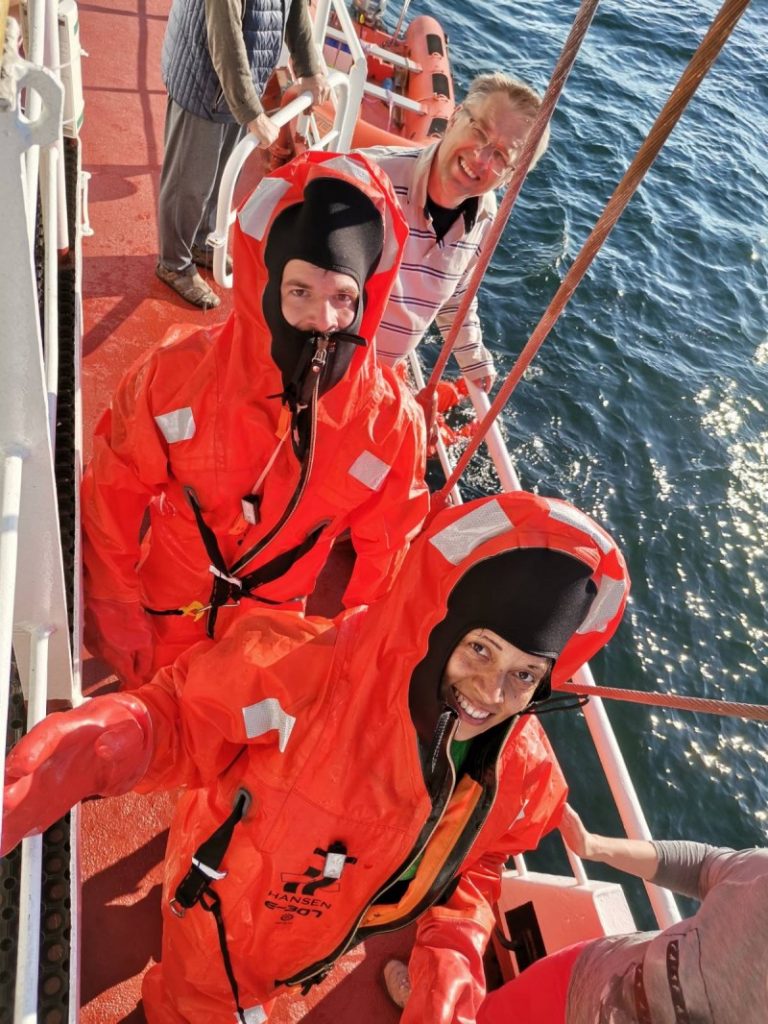Originally scheduled to sail in June 2020 to do a transect along the Baltic Sea Danish Strait and the Norwegian Sea; the RV Oceania operated by the Institute of Oceanology Polish Academy of Science (IOPAN) was finally able to sail for a circular loop from Gdansk, Poland. Although it was a year later and a shorter journey than planned there was the same, if not more enthusiasm from everyone involved.

From early 2020, the COVID-19 pandemic completely stopped all transit among countries and left the scientific community wondering when we could resume fieldwork activities. This is why when I received the news that the Floating University was actually happening this year, I knew I had to do everything in my power to take part in it. Very few times in my life, I have felt so fortunate to participate in a project. After more than a year of working from home, sharing this experience with 6 other students affiliated with institutions across 4 European countries (Italy, Greece, Denmark and Germany) was incredibly rewarding.
The general objective of the course was to provide theoretical background and practical experience in conducting instrumental measurements of inherent and apparent optical properties in marine waters and collecting water samples for determination of concentrations of optically significant sea water constituents. The 8-day training programme was composed of a combination of lectures, laboratory work and practical sampling/measurements, and interpretation of optical and biogeochemical data. We learnt from experts on using the latest International Ocean-Colour Coordinating Group (IOCCG) measurements and sampling protocols. Onboard, we worked in small teams guided by staff from IOPAN to conduct optical measurements and water sampling on selected stations in the Danish straits and along the ship track during passage around the Danish Island of Sjælland.
Students, staff, and crew integrated quickly and formed a friendly group focused on research and learning. We also enjoyed the social life and interaction we all lacked because of the COVID-19 pandemic social distancing rules. There was time for social events, including informal meetings, watching movies and even a barbecue on deck. But I have to say the most memorable event was the live rehearsal ‘Abandon ship’ drill that included putting on survival suits and jumping overboard (for volunteers only).
Overall, my first cruise experience could not have been better. I have an immense appreciation for all the hard work done by IOPAN staff, especially Prof. Piotr Kowalczuk, who made it possible for everyone involved to travel safely during a global pandemic. As an early researcher, to have the opportunity to witness such a resilient group carrying out the training programme among all difficulties with excellence was not only inspiring but invaluable.
Africa Gomez-Castillo is a final year postgraduate research student at the University of Southampton (co-funded by CONACyT, Mexico) working with Prof. Duncan Purdie. After obtaining a BSc in Biochemical Engineering and a MSc in Environmental Management in Mexico, she moved to the UK to continue her studies in Oceanography. Her PhD research focuses on estimating the timing of major phytoplankton blooms and net community production daily variability in coastal regions through high frequency in situ measurements of dissolved oxygen.
Africa Gomez-Castillo thanks the Challenger Society for awarding her a travel award that contributed to the travel expenses to Poland to join the EUROFLEETS+ Floating University Course on board R/V Oceania June 2021
Article originally published by Africa Gomez-Castillo on Challenger Society for Marine Science
